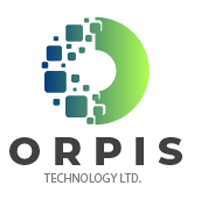POS System FAQ
-
What Is a POS System?
A Point of Sale (POS) system is an integrated software and hardware solution for retailers to manage sales. POS systems take the place of conventional cash registers by handling transactions, plus POS systems can: • Process all types of payments • Track inventory • Manage your accounting needs • Calculate sales tax • Track employee work hours, vacation time, and absences • Handle payroll • Manage loyalty programs • Track sales history • Calculate pricing and discounts
-
How Does a POS System Work?
A POS system is made up of 2 main parts – the hardware, such as a printer, cash drawer, and a POS terminal, and the software, which is the computer program that operates the whole system. A POS system works by connecting your credit card processing apps, accounting apps, inventory apps, and other point of sale-related business apps into a single unit.
-
Getting the Right POS Hardware
POS hardware is the indispensable other half of your POS system. You’ll need to get the right hardware to match the actions and transactions you want to carry out using your POS system. A basic set of POS hardware consists of: • Printer to offer hard copies of receipts (retail stores, restaurants, and other brick and mortar businesses are likely to need this) • A POS terminal, or iPad or Android tablet to run your POS software • Credit card reader • A cash drawer to keep cash transactions secure and logged into your system Depending on your business, you might also need: • Extra tablets so wait staff can process orders at the table in restaurants • A router to strengthen your internet for cloud-based POS systems • A local server to host your on-premise POS software • Weight scales for food retailers • Barcode scanners • Networking cables to connect all of your hardware • An extra kitchen printer • Self-serve checkout kiosks
-
The Benefits of a POS System For Your Business
With a POS system, your business can retain more customers through a better, targeted loyalty program and you can also track inventory so that you never run out of stock unexpectedly. A POS system can help you run complex discount offers when appropriate. With the right POS system, you can also analyze sales history to discover seasonal buying trends and correlations, which can come in useful when you want to increase sales. You can also remove manual error by using barcode scanners and automatic synchronization, as well as combat absenteeism with a more reliable employee tracking system. Other major benefits include improving payment security as well as the ability to make more sales thanks to your ability to accept more types of payment.
-
Cloud-Based vs. On-Premise POS Systems
A cloud-based POS system stores data on remote servers and can be accessed online, whereas a traditional or on-premise POS system stores data on a local server and can be accessed through an internal network. Here’s a breakdown of the main differences between a cloud-based POS and an on-premise POS: Cloud-Based POS Systems On-Premise POS Systems Relatively low-cost to buy and setup, but have higher ongoing costs Expensive to setup and install, but carries very low ongoing costs Always accessible from wherever you are, even if you’re out of the country Comprehensive and extensive. On-premise POS systems can be used for very large and complex retail situations Highly scalable Not easily flexible or scalable Easy to carry around, making them ideal for mobile businesses Not easily portable, making it a poor choice for mobile businesses Dependant on a good internet connection Not reliant on the internet, so your POS system is always up and running even if the internet is down Able to keep your data backed up on the cloud so that you won’t lose anything if the system crashes At risk of losing all of your data if the server crashes Easy to integrate with other business apps Operated on a local server with all of your data and apps in your own network If you have long-term business plans and if your requirements are likely to continue to evolve as your business grows, then a cloud-based POS system is probably the best choice for you. On the other hand, if you have fixed needs or a small budget, you might be best served by choosing a traditional POS system
-
How to Choose a POS System Provider
Asking yourself these questions will help you choose the right POS system provider: • What features do I need? • Do I want to save money upfront or keep my monthly costs down? • What hardware do I need? If you need a lot of items, a provider that bundles hardware together with the software is a better bet, but if you're going to be using your existing iPad, you’ll need something different. • Does it integrate well with my existing business apps? • Is the pricing transparent? • Is it easy to set up and use? If it’s more complex, does it offer training? • What analytics does it offer and what metrics can it check? Make sure that the ones that are most important to you are included in the package. • How good is the customer service? • Is it simple to scale up as your business grows





